Select Language
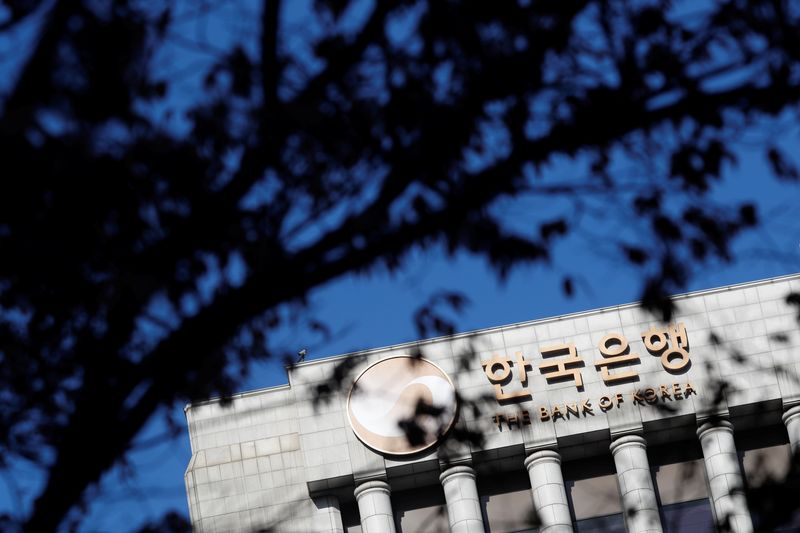
By Anant Chandak
BENGALURU (Reuters) - The Bank of Korea will keep its key policy rate unchanged at 3.50% for an eighth consecutive meeting on Thursday as inflation eases and until at least Q3 despite some concerns around financial stability, a Reuters poll found.
With inflation currently at 3.2%, above the central bank's 2% target, and the Korean won down around 1.8% against the dollar so far this year, the BOK is unlikely to change its hawkish stance anytime soon.
However, Governor Rhee Chang-yong said in a New Year speech the BOK would adopt a "policy mix" to bring down inflation and needed to prepare for the possibility of financial uneasiness that may be triggered by monetary policy remaining restrictive.
All 38 economists in the Jan. 3-8 Reuters poll expected the BOK to leave the base rate unchanged at 3.50% on Jan. 11.
"They (the BOK) will freeze the policy rate for the time being, but are likely to loosen their stance a bit," said Stephen Lee, chief economist at Meritz Securities Research Center.
"The most likely scenario for the BOK's pivot will be in 2H24. By then, both headline and core inflation will fall below 2.5%...increasing the need for policy support related to a soft-landing. The problem can be bigger if interest rates remain higher throughout the year."
According to the central bank, inflation was expected to return to its target in late 2024.
Median forecasts showed interest rates remaining on hold until end-Q2, followed by 25 basis-point cuts in each of the remaining two quarters of this year, unchanged from a November poll.
Among those who had forecast through Q3, nearly half or 11 of 24 economists expected interest rates to fall to 3.25%. While 10 saw them at 3.00%, two predicted no change at 3.50% and one saw rates at 2.75%.
If realised, the BOK's easing cycle for this year would be shallower than what is expected from the U.S. Federal Reserve, one of Korea's largest trading partners.
"There is not enough reason for the BOK to begin easing earlier. Healthier exports should mitigate weaker domestic demand following the BOK's restrictive monetary policy while the government's fiscal policy can provide selective support for the weaker segments of the economy," noted Jin Choi, economist at HSBC.
"We think the Board will likely retain its cautious stance mainly for two reasons. Firstly, we are not in for fast disinflation ahead. Moreover, the BOK has been stressing the risk of accumulated cost pressures faced by various domestic producers."
Economic growth will improve this year, averaging 2.1% in 2024 from 1.4% last year, BOK estimates showed.
(For other stories from the Reuters global economic poll:)
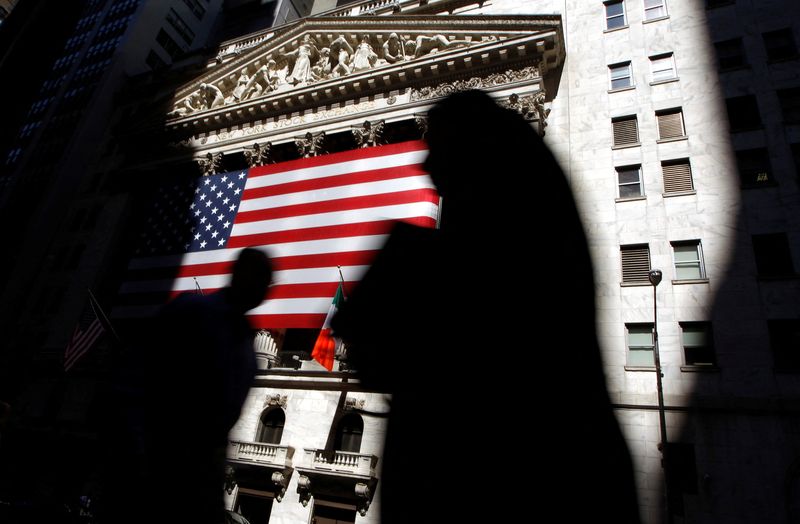
Investing.com -- U.S. stock futures edge lower on Monday with all-important inflation data out of the world's largest economy due later this week. Elsewhere, Boeing (NYSE:BA) shares fall premarket as the planemaker and U.S. regulators reportedly discuss the criteria for safety inspections after a dangerous mid-air fuselage breach. Meanwhile, an executive at the electric vehicle division of China's Evergrande is detained on suspicion of "illegal crimes."
1. Futures inch lower
U.S. stock futures hovered below the flatline on Monday, as investors prepared for the release of key inflation data later in the week that could factor into how the Federal Reserve approaches potential interest rate cuts in 2024.
By 05:13 ET (10:13 GMT), the S&P 500 futures contract had shed 9 points or 0.2%, Nasdaq 100 futures had lost 36 points or 0.2%, and Dow futures had dropped by 178 points or 0.5%.
Attention is turning the publication of the U.S. consumer price index from the Bureau of Labor Statistics on Thursday, which is expected to show that headline inflation accelerated slightly to 3.2% in December. The measure registered a pace of 3.1% in November. Month-on-month, it is seen speeding up to 0.2%.
But the core figure, which strips out volatile items like food and energy, is seen slowing to 3.8% annually and 0.2% monthly.
How the numbers shake out could impact market estimates for U.S. interest rates in the coming months. Hopes that the Fed will slash borrowing costs early this year have waned recently, particularly after minutes from the central bank's latest meeting showed that officials believed rates could remain elevated "for some time" to help bring inflation back down to its 2% target.
Evidence that the Fed's fight to cool price gains is proceeding slower than anticipated could further lessen what was buoyant optimism amongst traders in the final weeks of last year.
2. Boeing shares slump premarket amid scrutiny over fresh 737 Max incident
Shares in Boeing fell sharply in premarket trading in New York on Monday, as reports say that the planemaker and U.S. regulators have hit a snag in carrying out safety inspections in the wake of a mid-air breach of a 737 Max jet last week.
On Friday, a plug in an emergency door ripped from the left side of a Boeing 737 Max 9 jet shortly after the takeoff of an Alaska Airlines flight from Portland, Oregon to Ontario, California. Pilots turned around and landed the plane. Several passengers were treated for minor injuries, but no deaths were reported.
The Federal Aviation Administration subsequently ordered the temporary grounding of around 171 Boeing jets on Saturday. The agency later said the planes will not return to the air until it is "satisfied that they are safe."
But, citing people familiar with the matter, Reuters has reported that the FAA and Boeing have yet to agree on the criteria for the safety checks -- a crucial step before the inspections can take place and flights can resume.
Boeing, meanwhile, is planning to hold a company-wide meeting to discuss the incident, according to media reports. The firm has already faced heavy scrutiny over two fatal crashes of its 737 Max 8 plane in 2018 and 2019.
3. Congressional leaders reach bipartisan deal on federal spending levels
Democratic and Republican leaders in Congress announced that they have reached an agreement to set the federal spending limit for the 2024 fiscal year at roughly $1.66 trillion.
The framework accord comes as lawmakers on Capitol Hill are racing to hammer out a deal to fund the government before several federal agencies are set to run out of money later this month.
Republican House Speaker Mike Johnson said the agreement includes "hard-fought concessions," while Democratic leaders said it "clears the way for Congress to act."
A final spending deal would need to be passed by both the House and the Senate before being signed into law by President Joe Biden.
4. Evergrande EV unit says says director detained, shares slip
The electric vehicle division of China's Evergrande has said its Vice Chairman Liu Yongzhuo has been detained and is facing a criminal investigation, sparking a fall in the firm's Hong Kong-listed shares.
In a filing with the Hong Kong Stock Exchange, China Evergrande New Energy Vehicle Group announced that Liu was detained in accordance with the law on suspicion of "illegal crimes." It did not provide further details.
The announcement comes as Evergrande (HK:3333), the division's parent and the focal point of a real estate crisis that has threatened to disrupt the Chinese economy, faces a hearing later this month over demands from offshore bond holders to wind up the company. Evergrande's chairman Hui Ka Yan is also being investigated for suspected crimes, a separate filing in September showed.
Evergrande NEV, which once held ambitions of producing a million cars a year by 2025, sold just 760 of its only EV model in the first half of last year. It also posted a net loss of 6.9 billion yuan during the period.
5. Oil retreats after Saudi Arabia cuts prices
Oil prices fell Monday after Saudi Arabia slashed the prices of its Asian crude exports to over two-year lows, adding to the current narrative that global demand remains weak.
By 05:14 ET, the U.S. crude futures traded 2.0% lower at $72.32 a barrel, while the Brent contract dipped 1.9% to $77.30 per barrel.
Major crude exporter Saudi Arabia on Sunday cut the February official selling price of its flagship Arab Light crude to Asia to the lowest level in 27 months.
Yet, despite these worries over global economic activity, both benchmarks climbed more than 2% last week on rising geopolitical tensions in the Middle East following attacks by Yemen-based Houthis on ships in the Red Sea, prompting disruptions in shipping activity in the region.
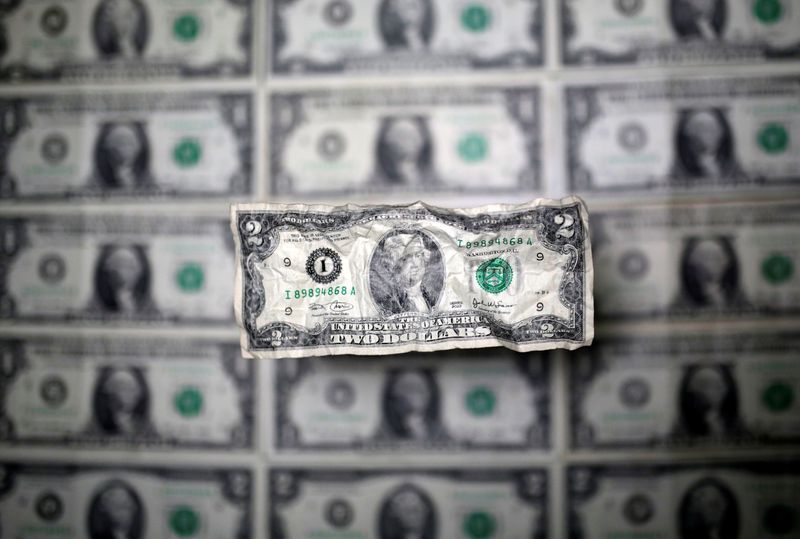
By Rae Wee
SINGAPORE (Reuters) -The dollar edged broadly higher on Monday as risk appetite remained subdued ahead of a key U.S. inflation report later in the week that is likely to provide further clarity on the Federal Reserve's monetary policy outlook.
The yen was nursing deep losses from last week and struggled near the 145 per dollar level, while the risk-sensitive Australian and New Zealand dollars edged lower in a cautious start to the week.
Trading was thinned in Asia with Japan out on a holiday.
Against the yen, the dollar fell 0.22% to 144.29, paring some of its gains from last week when it jumped 2.6% on the Japanese currency, its best weekly performance since June 2022.
The kiwi dipped 0.05% to $0.6239, after having slid 1.2% last week, while the U.S. dollar index steadied at 102.43.
The greenback's rally was underpinned by a rebound in U.S. Treasury yields as traders tempered their expectations of the pace and scale of Fed cuts this year.
A reading on U.S. inflation due on Thursday could again alter those views, after data on Friday showed U.S. employers hired more workers than expected in December while raising wages at a solid clip, pointing to a still-resilient labour market.
However, a separate survey out the same day showed the U.S. services sector slowed considerably last month, with a measure of employment dropping to the lowest level in nearly 3-1/2 years, painting a mixed picture of the world's largest economy.
"On balance, the key labour market themes remain in place. The labour market is no longer as tight as it was earlier in the recovery as signalled by slower job growth, less turnover and slower wage gains," said economists at Wells Fargo of the nonfarm payrolls report.
"That said, job growth remains solid on an absolute basis even if it has slowed on a relative one, and the low level of layoffs remains encouraging.
"We suspect the FOMC will keep the Fed funds rate unchanged over the next few months as it awaits additional confirmation that inflation is durably on its way to 2%."
Market pricing now shows a roughly 64% chance that the Fed could begin easing rates as early as March, compared to a nearly 90% chance a week ago, according to the CME FedWatch Tool.
Elsewhere, sterling lost 0.12% to last trade at $1.27035, while the euro was flat at $1.09405, after slipping 0.9% last week.
The Aussie slid 0.13% to $0.67055, extending its 1.5% fall from last week.
A reading on Australian inflation is also due later this week.
"We do need to see some easing in the core measure, because that's really where the (Reserve Bank of Australia) is focusing," said Tony Sycamore, market analyst at IG Australia.
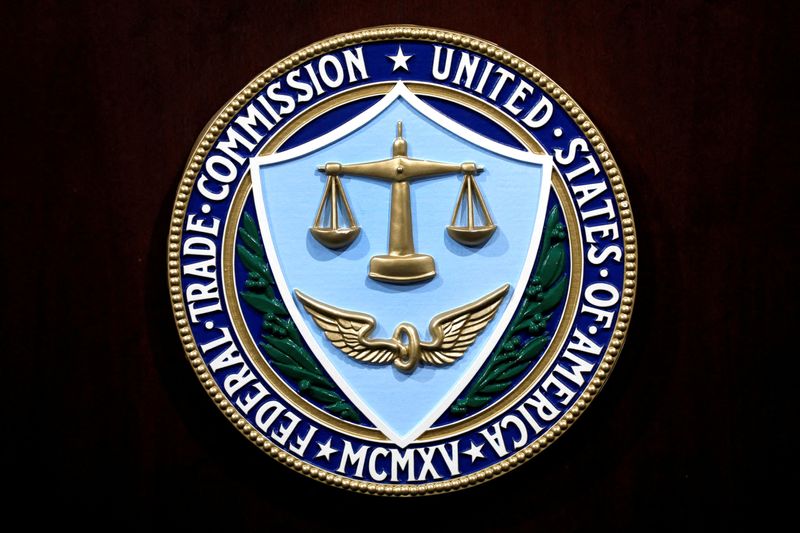
By David Shepardson
WASHINGTON (Reuters) -Two groups representing auto dealers said on Friday they had filed a legal challenge to the Federal Trade Commission's new sweeping consumer protection regulations finalized last month.
The FTC said the new rules will ban bait-and-switch advertising tactics, prohibit charging for add-on costs that do not benefit consumers and require dealers to make key disclosures to consumers, including accurate pricing disclosures in advertising and sales communications.
The rules were first proposed in 2022 and will take effect on July 30. They also require dealers to keep records of certain advertisements and customer transactions.
The National Automobile Dealers Association (NADA) and Texas Automobile Dealers Association late Thursday asked the Fifth Circuit Court of Appeals to block the new rules that "comprehensively regulates the advertising, sales, and financing of vehicles by auto dealers" saying they are "arbitrary, capricious (and) an abuse of discretion."
The FTC declined to comment.
The NADA said previously the FTC proposal would "upend the sales process for tens of millions of consumers annually and thousands of small businesses."
The FTC said the new rules would bar junk fees like a service contract for an oil change for an electric vehicle said it is expected to save consumers more than $3.4 billion and an estimated 72 million hours annually shopping for vehicles.
Dealers will also be required to obtain consent for any charges they add to a vehicle's price and barred from charging for add-ons that are useless to the buyer, such as selling nitrogen-filled tires that contain no more nitrogen than normal air.
The Alliance for Automotive Innovation, representing General Motors (NYSE:GM), Toyota Motor (NYSE:TM), Volkswagen (ETR:VOWG_p) and other major automakers, previously raised concerns about the FTC plan, warning of "excessive regulation and micromanagement of the sales experience."
In November, a U.S. House committee said it was investigating the FTC's consumer protection rules, arguing the regulation "threatens harm to consumers and small businesses by making car purchases more difficult and inhibiting innovation in the industry."
A group of 17 Democratic lawmakers in June urged the FTC to "adopt strong regulatory protections for car buyers," arguing that "unfair and deceptive practices involving motor vehicle dealers have widespread consequences."
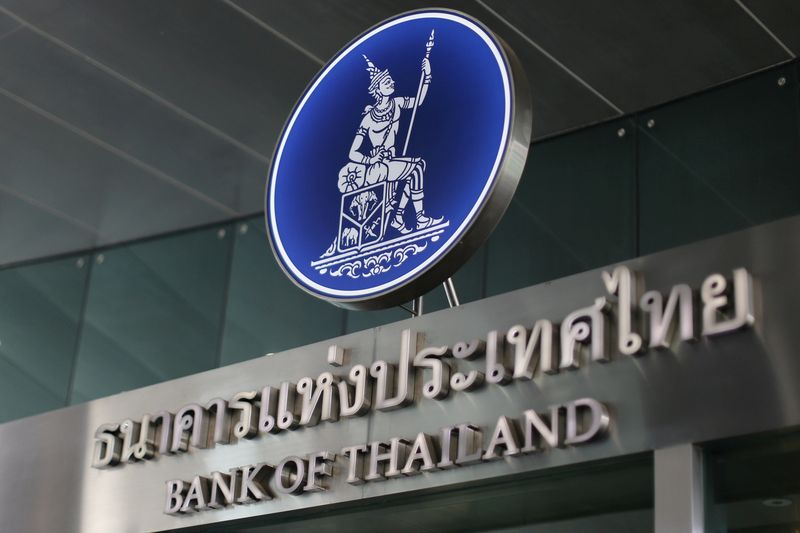
BANGKOK (Reuters) - Thai Prime Minister Srettha Thavisin said the central bank's rate increases have not been good at all for the economy, urging it to avoid moves that will adversely impact low-income families and small businesses.
The government of Srettha, a real estate tycoon who took office in August, is seeking to spur growth in Southeast Asia's second biggest economy though stimulus and consumer spending, with Thailand trailing regional peers with growth forecast at about 2.4% last year, short of the 2022 figure.
"The Bank of Thailand has raised interest rates despite of negative inflation for many consecutive months is not good for the economy at all and also has an impact on people with low incomes and SMEs," he said on X social media late on Sunday.
The central bank left its policy rate unchanged at 2.5% in November after raising it by 200 basis points since August last year to curb inflation. It will next review policy on Feb. 7.
Headline inflation came in at -0.83% in December, making it the eighth straight month that it was outside the central bank's target of 1% to 3%.
Srettha said he hoped the central bank would "help take care of the people by not raising rates in the opposite direction of inflation.
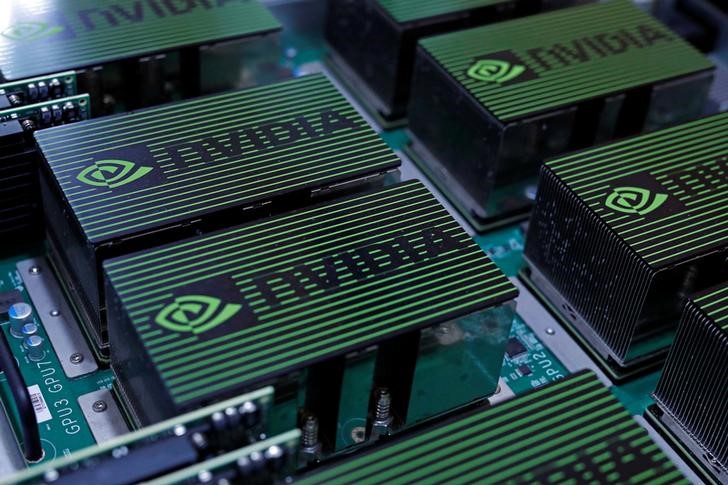
SANTA CLARA - Nvidia (NASDAQ:NVDA), a heavyweight in the artificial intelligence (AI) sector, has experienced a remarkable surge in its stock value, which has nearly tripled recently. This significant increase is largely attributed to the growing demand for the company's Graphics Processing Units (GPUs), which are vital for AI applications.
The company's role in advancing AI technologies has been a major factor in its success, and it is anticipated to maintain its growth trajectory as the AI hardware market continues to expand. Nvidia's standout performance has been a key contributor to the strong recovery of the Nasdaq Composite, which has witnessed a 43% rise following a previous downturn.
The current economic climate appears to be favorable for technology investments, particularly for companies like Nvidia that are positioned for sustained growth in various high-growth sectors. This optimism is supported by controlled inflation levels and the prospect of interest rate cuts by the Federal Reserve, creating an encouraging environment for technology stocks.
This article was generated with the support of AI and reviewed by an editor. For more information see our T&C.
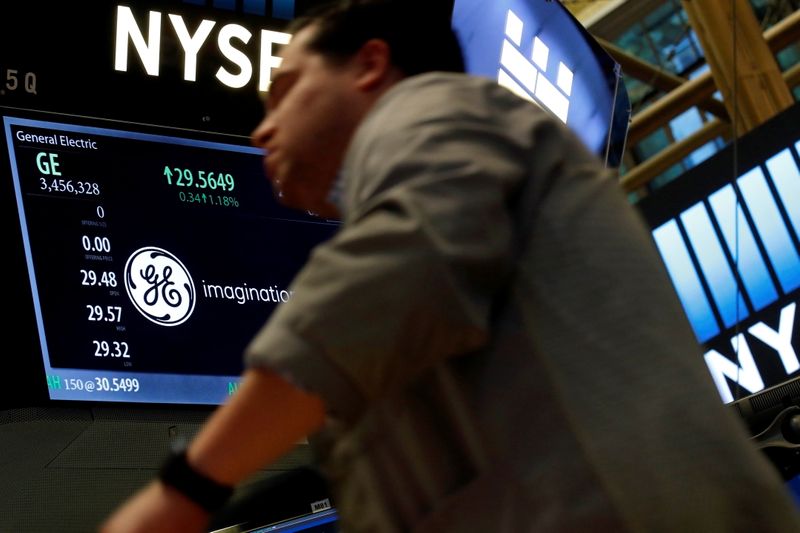
Investing.com -- U.S. inflation data will be the main focus this week as investors await further clarity on the future path of Federal Reserve interest rates. Big U.S. banks kick off earnings session, crypto looks set to remain volatile and the U.K. is to release GDP data. Here’s what you need to know to start your week.
Inflation data
The U.S. is to publish the latest consumer price index figures on Thursday, followed a day later by the report on producer prices, with investors watching closely for clues on the possible trajectory of interest rates.
A gradual cooldown in inflation has fueled bets that the Fed could begin to cut interest rates as soon as March.
Hopes for a swift pace of easing had triggered a blistering rally in the final weeks of 2023, which took the S&P 500 to within 1% of its all-time high. But investors have turned cautious since the start of 2024, as they awaited further clarity on when rate cuts will begin, and how quickly they will happen.
Friday’s employment report for December dampened hopes for rapid rate cuts, with the U.S. economy adding more jobs than expected, but a separate report showing service sector activity slowing last month encouraged expectations for swift easing.
Investors will also get to hear from several Fed officials during the week, including New York Fed President John Williams and Atlanta Fed head Raphael Bostic.
Bank earnings
Major U.S. banks kick off earnings season with JPMorgan Chase (NYSE:JPM), Bank of America (NYSE:BAC) and Citigroup (NYSE:C) due to report fourth quarter and full-year results on Friday.
Top lenders brought in more income from interest payments in 2023 as the Fed raised rates, helping banks to offset a protracted slump in dealmaking revenue in Wall Street divisions.
Consumers are also in focus with household finances having remained largely healthy since the pandemic, but some customers, particularly those on lower incomes, are starting to fall behind on payments in greater numbers.
Earnings season will be a test of elevated expectations for corporate profits. Analysts expect S&P 500 earnings to rise by 11% in 2024 after increasing just 3% in 2023, according to LSEG data cited by Reuters.
Stormy seas
Market watchers have been looking to oil prices for signs that the Israel-Hamas conflict will push global inflation higher, but with expectations of heavy supply, oil does not tell the whole story.
As transport groups re-route vessels away from the Red Sea, retailers face the biggest shipping upheaval since COVID-19 stymied the freight industry in 2020.
The result could be Western retailers waiting longer for goods to arrive from China, with shortages pushing up prices, trade analysts say. The British Retail Consortium has said rising costs could reverse a trend of moderating grocery price inflation.
Markets, more focused on relatively moderate oil prices, have so far shown limited concern about Red Sea shipping. But investors would be wise to monitor freight costs for signs that the battle against inflation is not over.
Bitcoin ETF optimism
Bitcoin kicked off the new year with strong gains buoyed by hopes for a possible approval by U.S. regulators of exchange-traded spot bitcoin funds.
The largest crypto token by market cap topped $45,000 for the first time since April 2022 on bets that such applications will get the nod from the Securities and Exchange Commission in the near future.
Market players say the SEC's decision may be imminent and could usher in a new wave of capital to crypto. Such hopes helped propel bitcoin in 2023 to yearly gains of more than 155%.
But Bitcoin has already trimmed back gains amid some lingering doubts over how much demand will exist for any bitcoin ETF and whether approval is already priced in.
U.K. GDP
The U.K. is to release GDP data for November on Friday with economists expecting a modest rebound after October’s drop, which was due to an unusually large decline in manufacturing activity.
Data on Friday pointing to a rebound in Britian’s service sector activity in December indicated that the economy may narrowly avoid a recession as businesses and households weather the storm of high inflation and borrowing costs at a 15-year peak.
The Bank of England is facing calls from business leaders, worried about the economy, to cut interest rates. Investors are pricing in a first reduction in interest rates in May.
BoE Governor Andrew Bailey, along with several other policymakers, is due to testify to parliament on financial stability on Wednesday.
--Reuters contributed to this report
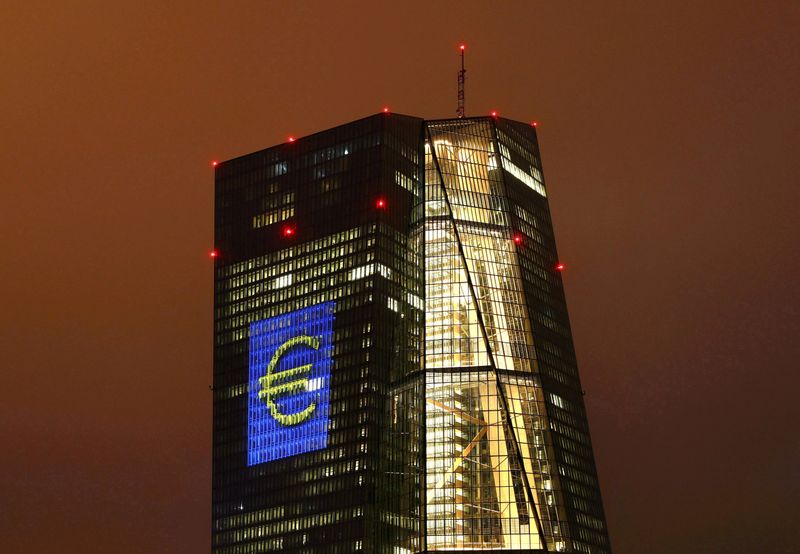
By Harry Robertson
LONDON (Reuters) - A 150 billion euro ($165 billion) deluge of government bond sales in January is fueling unease in euro area bond markets, a foretaste of a potentially record amount of public debt that markets will have to absorb this year.
Bond yields, which move inversely to prices, have started 2024 higher after plunging in November and December. Germany's 10-year yield, the euro zone benchmark, has risen to just over 2% from a one-year low of 1.896% last week.
A trimming of investor bets on how much and how early central banks will cut interest rates this year has driven the bond selloff. Now adding to it, are concerns that markets will struggle to digest another year of hefty government debt sales.
ING estimates that the euro area will issue around 150 billion euros of debt this month alone as governments seek to take advantage of the recent yield fall and investors look for new-year opportunities. There is 72 billion euros of net supply when redemptions are factored in.
Inflation has driven euro zone states to increase welfare payments and public sector wages, while higher borrowing costs are adding to their interest bills, keeping debt issuance high.
A similar amount of debt was issued in January last year, but it's now coming after a powerful rally that looks like it's nearing an end, said Societe Generale (OTC:SCGLY) interest rates strategist Jorge Garayo.
"The current (yield) levels, they look difficult for the market to digest the amount of supply that is going to be coming," he said. "For us, supply will be a worry and should have an upward impact on yields."
Michael Weidner, co-head of global fixed income at Lazard (NYSE:LAZ) Asset Management, said one concern is that governments plan to issue a large amount of longer-dated debt.
Longer-dated bonds are generally viewed as more risky, so investors typically demand a premium to hold them.
"We believe there will be more issuance in (longer-dated bonds), and how much duration the market's ready to absorb is a bit of a question mark given the level of yields," said Weidner.
Germany plans to issue 10-year bonds this month, and Spain has already sold a 30-year maturity.
ECB FACTOR
Adding to investors' worries is the fact that the European Central Bank (ECB), a hoover of government debt over the last decade, is extricating itself from the market.
The ECB announced in December it would start to reduce its 1.7 trillion euro pandemic-era bond purchase programme - PEPP - by 7.5 billion euros a month in the second half 2024. It is already winding down another of its asset purchase schemes.
When so-called quantitative tightening is taken into account, markets could have to absorb a record 675 billion euros of government debt this year, Barclays estimates, up 25 billion euros on last year.
Weidner said he expects the gap between Italian and German bond yields to widen as Germany tries to bear down on its debt levels and the ECB, which has been a crutch for Italian bonds, steps out of the market.
At around 168 basis points, that spread has widened roughly 10 bps over the past week but was still below peaks seen in recent years.
Not everyone is concerned. Joost van Leenders, senior investment strategist at Van Lanschot Kempen, said inflation and central banks will continue to drive bond markets.
"The economic and inflation cycles tend to be far more important than concerns about bond issuance," he said. "Bond yields have fallen because inflation has fallen."
Governments will still be able to issue debt, said RBC Capital Markets' chief European macro strategist Peter Schaffrik, especially as they also plan to redeem plenty of bonds, returning money to investors.
"I don't think there will be any failed auctions or anything like that, it's just a question of the yield concession that the market demands."
($1 = 0.9122 euros)
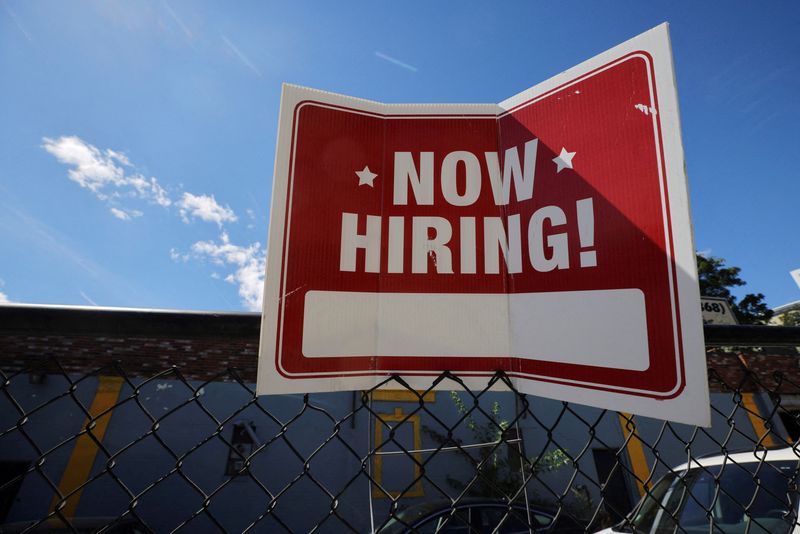
By Lucia Mutikani
WASHINGTON (Reuters) - U.S. job growth likely moderated in December, while the increase in annual wages probably slowed to below 4% for the first time in 2-1/2 years, potentially drawing the Federal Reserve a step closer to start cutting interest rates.
The closely watched employment report from the Labor Department on Friday is also expected to show the unemployment rate edging up to 3.8% last month from 3.7% in November. Easing labor market conditions would add to data last month showing inflation ebbing significantly in November and could cement financial market expectations for a rate cut in March.
The report would also indicate that the economy avoided a recession last year and would likely continue to grow through 2024 as labor market resilience supports consumer spending.
"Right now, employers are hiring to keep the doors open, rather than to expand, but they're also not letting workers go," said Elizabeth Crofoot, a senior economist at Lightcast in Washington. "That's close to the 'Goldilocks' job market that the Fed has been trying to achieve."
Nonfarm payrolls likely increased by 170,000 jobs last month after rising 199,000 in November, according to a Reuters survey of economists. Baring any revisions to October and November's payrolls counts, this would mean the economy added roughly 2.722 million jobs in 2023, a sharp step-down from the 4.793 million positions created in 2022.
That reflects cooling demand for both labor and in the economy following 525 basis points worth of rate hikes from the U.S. central bank since March 2022.
Roughly 100,000 jobs per month are needed to keep up with growth in the working age population.
Unseasonably mild weather likely boosted hiring at construction sites last month, while employment in the motion picture and sound recording industries is expected to rise further as disruptions from the since ended strikes fade.
Retail employment is a wild card amid conflicting signals on the holiday shopping season.
DANGER LURKING?
But danger could be lurking beneath the seemingly resilient labor market. Job growth in recent months has been largely concentrated in less than a handful of sectors, including leisure and hospitality as well as healthcare.
Government hiring as state and local governments try to bring education staffing back to pre-pandemic levels has also been driving employment gains.
Government payrolls growth has averaged 63,800 per month since July. Some economists said this indicated that the labor market was not as strong as the numbers suggested. Nonetheless, most do not expect a recession this year, but lackluster growth.
"The rest of the industries have not been hiring people very much at all," said Sung Won Sohn, finance and economics professor at Loyola Marymount University in Los Angeles. "We are going to have a 'soft landing' but that hides the pain."
Goldman Sachs economist Manuel Abecasis was, however, less concerned, noting that the three industries that have dominated hiring accounted for 40% of employment.
"The industries accounting for 70% of total employment have continued to add jobs on net," said Abecasis. "Looking ahead, we expect total labor demand to continue to ease gradually but the breadth of hiring to widen somewhat."
Financial markets are betting the Fed will begin cutting rates as early as March. Those expectations could get more mileage, with average hourly earnings expected to increase 0.3% in December after rising 0.4% in the prior month.
That would lower the year-on-year increase in wages to 3.9%, the smallest since June 2021, from 4.0% in November.
The central bank held its policy rate steady in the current 5.25%-5.50% range last month and policymakers signaled in new economic projections that the historic monetary policy tightening engineered over the last two years is at an end and lower borrowing costs are coming in 2024.
With December's employment report, the government will incorporate annual revisions to the seasonally adjusted household survey data, from the which the unemployment rate is derived, for the past five years.
The revisions typically have little impact on the jobless rate or the labor force participation rate.
There has been an influx of people into the labor force, some of it tied to a rise in immigration. The expanding labor pool is curbing wage growth and lifting the unemployment rate, which has risen from a five-decade low of 3.4% in April.
"We are certainly getting in the territory where, when incorporating productivity, wage growth is more consistent with the Fed's 2% target," said Sam Bullard, a senior economist at Wells Fargo in Charlotte, North Carolina.
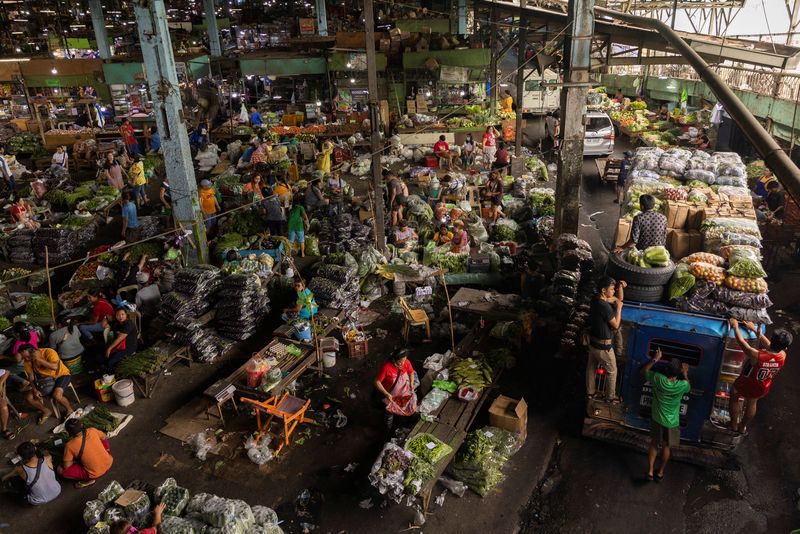
By Neil Jerome Morales and Mikhail Flores
MANILA (Reuters) - Philippine inflation slowed to its weakest in nearly two years in December but full-year readings remained outside the central bank's target zone, diminishing chances of near-term rate cuts.
The central bank did not waver on Friday from its stance in early December that policy settings would stay "sufficiently tight", underscoring concerns about inflation despite a slowdown in the pace of price gains.
The consumer price index in December rose 3.9% from a year earlier compared with 4.1% in November, the statistics agency said on Friday, the slowest since February 2022 and the third straight month that inflation has eased.
That brought the 2023 average inflation rate to 6.0%, still way outside the central bank's 2%-4% target.
"The Monetary Board deems it necessary to keep monetary policy settings sufficiently tight until a sustained downtrend in inflation becomes evident," the Bangko Sentral ng Pilipinas (BSP) said in a statement following the data.
"The BSP will continue to monitor inflation expectations and second-round effects and take appropriate action as needed to bring inflation back to the target," it added.
Economists in a Reuters poll had forecast annual inflation of 4.0% in December, within the central bank's 3.6% to 4.4% projection for the month.
Core inflation, which strips out volatile food and energy prices, was at 4.4% in December versus 4.7% in the previous month.
Among the main contributors to slower inflation was a decline in food inflation to 5.5% in December from 5.8% in November, the statistics agency said.
The central bank kept its benchmark interest rate steady at 6.5% for a second straight meeting in December, after a series of rate increases to rein in inflation, including an off-cycle hike in October.
It meets for the first time this year on Feb. 15.
"We think that the BSP has sufficiently tightened despite additional supply side risks," said Domini Velasquez, chief economist at China Banking Corp in Manila.
"However, even if the BSP stands pat, which is the likely scenario, we think that the central bank will not be in a hurry to cut rates due to the risks," added Velasquez, who has penciled in rate cuts by the second half of 2024.

